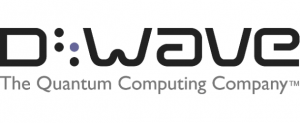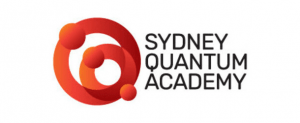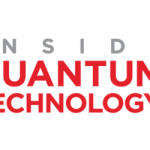Quantum News Briefs August 8: D-Wave Quantum Inc. to begin trading under “QBTS” & ring NYSE opening bell, Software updates for quantum computing may create security flaws, Chinese researchers claim to have matched Google’s quantum computer supremacy using ‘traditional’ computer, Software updates for quantum computing may create security flaws & MORE

Quantum News Briefs today opens with the news that D-Wave Quantum Inc. to begin trading under “QBTS” & also to ring the New York Stock Exchange opening bell this morning at 9:30 am EST, followed by cautionary article that “Software updates for quantum computing may create security flaws.” Next is a brief from a Chinese research team that claims to have matched Google’s quantum computer supremacy using ‘traditional’ computer, & MORE.
D-Wave Quantum Inc. to Begin Trading Under Ticker symbol “QBTS” & Ring New York Stock Exchange Opening Bell, August 8, 2022, 9:30am ET
 DPCM Capital, Inc. (“DPCM Capital”) (NYSE: XPOA), a publicly traded special purpose acquisition company, announced on August 5 he completion of its business combination with D-Wave Systems Inc., a leader in quantum computing systems, software, and services—and the only provider building both annealing and gate-model quantum computers. Quantum Tech Briefs shares the key points of the news announcement here. Parent company D-Wave Quantum Inc. to began trading today, August 8 under the ticker symbol “QBTS” and ring the New York Stock Exchange opening bell on at 9:30am ET
DPCM Capital, Inc. (“DPCM Capital”) (NYSE: XPOA), a publicly traded special purpose acquisition company, announced on August 5 he completion of its business combination with D-Wave Systems Inc., a leader in quantum computing systems, software, and services—and the only provider building both annealing and gate-model quantum computers. Quantum Tech Briefs shares the key points of the news announcement here. Parent company D-Wave Quantum Inc. to began trading today, August 8 under the ticker symbol “QBTS” and ring the New York Stock Exchange opening bell on at 9:30am ET
Pursuant to the Business Combination, D-Wave Quantum Inc. (“D-Wave Quantum” or the “Company”) became the parent company of DPCM Capital and D-Wave, and its shares of common stock and warrants are expected to commence trading, on Monday, August 8, 2022 on the New York Stock Exchange (the “NYSE”) under the ticker symbols “QBTS” and “QBTS WS,” respectively. DPCM Capital’s shares of common stock, units and warrants have been delisted from the NYSE.
Read IQT-News August 2: D-Wave, DPCM a step closer to completing deal after SEC nod
“From its inception more than 20 years ago, D-Wave has focused on delivering quantum computing products and services that provide the fastest path to practical, real-world applications with customer value,” said Alan Baratz, CEO, D-Wave Quantum. “Today marks a significant milestone in our journey, as we embark on our next phase as a publicly-traded company. Through this Business Combination, we are well-positioned to accelerate our growth strategy, using capital raised through the Business Combination along with our new access to the public markets to advance the production of our quantum computing solutions and continue to unlock the power of quantum computing to benefit business and society. The era of commercial quantum computing is here.”
*****
Software Updates for Quantum Computing May Create Security Flaws
 Software updates for quantum computing may create security flaws. Protocol’s Kyl Alspach explains in his recent article summarized here by Quantum News Briefs.
Software updates for quantum computing may create security flaws. Protocol’s Kyl Alspach explains in his recent article summarized here by Quantum News Briefs.
It’s inevitable that we’ll see a large number of vulnerabilities unintentionally introduced as software and hardware get updated, according to Jonathan Katz, a cryptography expert at the University of Maryland. “We know how to design mathematically secure algorithms,” Katz told me. “We’re not quite as good yet at implementing them in a secure way.”
In part, this is because the tech industry feels some serious pressure to get going on this — and rightly so. Meanwhile, as the saying goes, speed is the enemy of security. And there’s going to be a lot of new software being written as part of these post-quantum preparations
“The industry is now in the mode of, ‘OK, we know what the algorithm is going to look like — how do we actually deploy it into systems? And what are the troubles and pitfalls of that?'” said Nick Sullivan, head of research at web security and performance vendor Cloudflare.
Software developers, however, have had decades to figure out how to properly deploy existing forms of encryption, such as RSA. “That time has allowed people to learn from their mistakes,” Katz said. “And many mistakes were made along the way.”
Now, we may have the same situation occur again, with the implementation of largely untested new algorithms that are based on different techniques, he said. Rather than facing an underlying issue with the algorithms, he believes it’s more probable we’ll see a variety of flaws in the code introduced during the software engineering process. Click here to read complete article.
*****
HCL Technologies and Sydney Quantum Academy to collaborate on quantum technology ecosystem development
 HCL Technologies (HCL), a leading global technology company, and the Sydney Quantum Academy (SQA) have signed a Memorandum of Understanding (MoU) to help accelerate the development of the quantum technology ecosystem in Australia.
HCL Technologies (HCL), a leading global technology company, and the Sydney Quantum Academy (SQA) have signed a Memorandum of Understanding (MoU) to help accelerate the development of the quantum technology ecosystem in Australia.
SQA is a unique partnership between four world-leading universities – Macquarie University, the University of New South Wales, the University of Technology Sydney, and the University of Sydney. SQA is supported by the New South Wales (NSW) government with a vision to build Australia’s quantum economy.
Through this industry-academia partnership, HCL Technologies and SQA aim to bring together their capabilities to create education and development opportunities for students within the realm of quantum technology. Other opportunities, which will be explored as part of the MoU, will connect HCL’s diverse and large client base with the growing Sydney quantum community. Sydney is home to one of the highest concentrations of quantum experts globally, along with a burgeoning quantum technology industry.
HCL has built deep capabilities in next-generation technologies including quantum computing. The Company is helping enterprises and partners to capitalize on the emerging opportunities thrown up by quantum technologies through a ready-to-innovate ecosystem. This includes identified quantum champions (technology and business), research IPs, use-cases and scale-ready offerings (Proof of Concepts and Fluidic Capability Centers).
Click here to read complete announcement.
*****
Traditional computers match Google’s quantum computer performance
 A team of Chinese researchers now claim to have replicated the performance of Google’s Sycamore quantum computer to achieve quantum suupremacy using traditional hardware according to article in Business Standard summarized here.
A team of Chinese researchers now claim to have replicated the performance of Google’s Sycamore quantum computer to achieve quantum suupremacy using traditional hardware according to article in Business Standard summarized here.
In 2019, Google researchers claimed they had passed a milestone known as quantum supremacy when their quantum computer Sycamore performed in 200 seconds an abstruse calculation they said would tie up a supercomputer for 10,000 years.
Now, scientists in China have done the computation in a few hours with ordinary processors. A supercomputer, they say, could best Sycamore outright.
“I think they are right that if they had access to a big enough supercomputer, they could have simulated the task in a matter of seconds,” said researcher Scott Aaronson, a computer scientist at the University of Texas, Austin.
The team used a system comprised of 512 GPUs to complete the same calculation developed by Google to demonstrate it had passed the quantum supremacy milestone back in 2019.
Sergio Boixo, principal scientist for Google Quantum AI, said in an email the Google team knew its edge might not hold for very long. “In our 2019 paper, we said that classical algorithms would improve,” he said. But, “we don’t think this classical approach can keep up with quantum circuits in 2022 and beyond”.
The “problem” Sycamore solved was designed to be hard for a conventional computer but as easy as possible for a quantum computer, which manipulates qubits that can be set to 0, 1 or any combination of 0 and 1 at the same time.
*****
UMN-led team receives $1.4M Keck Foundation Grant to Study Process Combining Quantum Physics & Biochemistry
 A University of Minnesota Twin Cities-led team received a $1.4 million award from the W. M. Keck Foundation to study a new process that combines quantum physics and biochemistry. This iis the first grant of its kind the University has received in 20 years. Quantum Briefs summarizes below.
A University of Minnesota Twin Cities-led team received a $1.4 million award from the W. M. Keck Foundation to study a new process that combines quantum physics and biochemistry. This iis the first grant of its kind the University has received in 20 years. Quantum Briefs summarizes below.
One of the biggest challenges for scientists is that the information stored in quantum bits (the building blocks of quantum computers) is often short-lived. Early-stage prototype quantum computers do exist, but they lose the information they store so quickly that solving big problems of practical relevance is currently unachievable.
One approach researchers have studied to attempt to make quantum devices more stable is by combining semiconductors and superconductors to obtain robust states called Majorana modes, but this approach has been challenging and so far inconclusive since it requires very high-purity semiconductors. U of M School of Physics and Astronomy Associate Professor Vlad Pribiag, who is leading the project, has come up with a new idea that could yield stable Majorana quantum structures.
Pribiag’s proposed method leverages recent advances in DNA nanoassembly, combined with magnetic nanoparticles and superconductors, in order to detect Majoranas, which are theoretical particles that could be a key element for protecting quantum information and creating stable quantum devices.
“This is a radically new way to think about quantum devices,” Pribiag said. “When I heard about this technique of DNA nanoassembly, I thought it fit right into this problem I had been working on about Majoranas and quantum devices. It’s really a paradigm shift in the field and it has tremendous potential for finding a way to protect quantum information so that we can build more advanced quantum machines to do these complex operations.”
The project, entitled “Topological Quantum Architectures Through DNA Programmable Molecular Lithography,” will span three years. Pribiag is collaborating with Columbia University Professor Oleg Gang, whose lab will handle the DNA nanoassembly part of the work.
*****
Sandra K. Helsel, Ph.D. has been researching and reporting on frontier technologies since 1990. She has her Ph.D. from the University of Arizona.





















